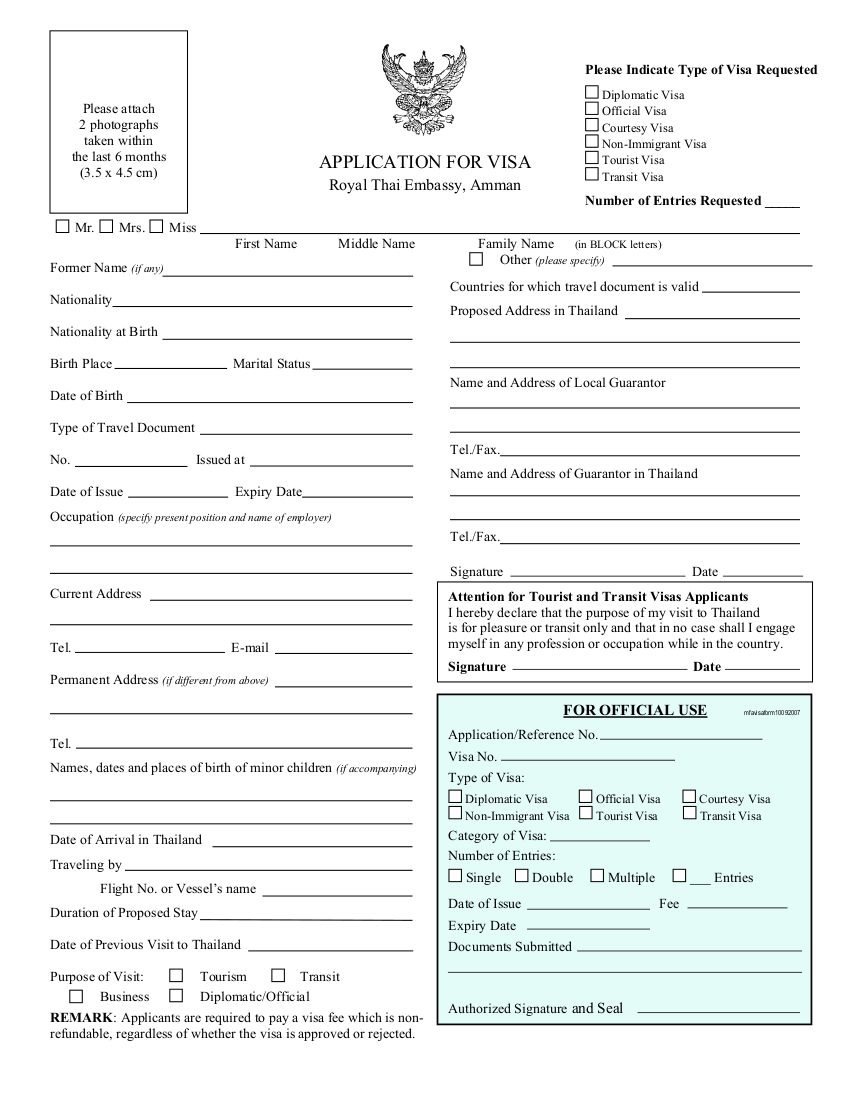
Kenya citizens require a visa on arrival while visiting Jordan. This means that an applicant does not need a visa before traveling. While in Jordan, immigration gives a 30-day visa to the citizens of Kenya. The citizen also has the opportunity to make a request for an extra 30 days if they do so. There is another type of visa known as the eVisa, which someone may use if they apply for the visa before traveling. The application process for the eVisa is quite straightforward. Kenya citizens can apply on the online portal, upload documents, and pay applicable fees. The typical documents required usually include A valid passport with at least six months of remaining validity, Passport photographs, and details of travel. At VisitsVisa, we simplify the entire process to obtain Jordan visa for Kenya citizens. However it doesn't matter whether the visa is to be sought while arriving in the country, or the eVisa is to be acquired, prior to travel. Every step is explained in advance by the professionals at VisitsVisa.
Commence on your journey through shimmering sands and towering skylines with Jordan Visa Processing: Apply, Await, Anticipate, and Delight.
| Type of Visa | VISA FEE ($) | Express Delivery (99 $) | Insurance ($) | Action |
|---|---|---|---|---|
| Apply Now |
VisitsVisa simplifies the visa application process by providing a clear and detailed checklist of required documents. No need to stress about what to submit; our checklist ensures you have all the necessary documents ready for a successful application. From the completed visa application form to your travel itinerary, each document is crucial in verifying your eligibility. This comprehensive guide makes it easy to gather and organize the needed paperwork, helping to avoid any delays in your visa processing.
To apply for a Jordan visa, you typically need the following documents:

Yes, most foreign nationals require a visa to enter Jordan. Some countries are eligible for a visa on arrival, while others may need to apply in advance.
Jordan offers Tourist, Business, Transit, and Student visas. The Tourist visa is the most common for short-term visits, while others serve specific purposes.
Yes, citizens of many countries can obtain a visa on arrival at Jordanian airports and some land borders. Check your eligibility before traveling.
A single-entry Tourist visa typically allows a stay of up to 30 days. For longer stays, consider a multiple-entry visa or extending your visa.
Yes, you can extend your visa at the Ministry of Interior in Jordan. Extensions are generally allowed for 1-2 months, with specific requirements and fees.
You can apply through the nearest Jordanian embassy or consulate, or online if eligible for an e-visa. Some travelers may also get a visa on arrival.
Typically, you’ll need a valid passport, passport photos, completed application form, proof of accommodation, and proof of funds. Additional documents may be required based on visa type.
Yes, citizens of select countries can apply for an e-visa online. Check the official Jordan visa website to see if your country qualifies.
Visa fees vary by type and entry option. Single-entry visas typically cost around $40 USD, while multiple-entry visas cost more. Confirm fees before applying.
Processing times vary based on your country and application type. Embassy applications can take days to weeks, while e-visas and visas on arrival are typically quicker.
No, a Tourist visa does not permit employment in Jordan. You must apply for a Work visa and obtain a work permit if you plan to work in Jordan.
COVID-19 requirements, such as vaccination or a negative PCR test, may apply. Check for the latest health and travel advisories before your journey.
Yes, you can enter Jordan through land borders with Israel, Saudi Arabia, Syria, and Iraq. Visa-on-arrival may be available at some borders, but confirm this with border authorities.
Jordan has agreements with a few countries for visa-free entry or simplified visa processes, though most visitors require a visa. Confirm details with your embassy.
If denied, contact the Jordanian embassy or consulate to understand the reason. You may reapply after addressing any issues or providing additional documents.